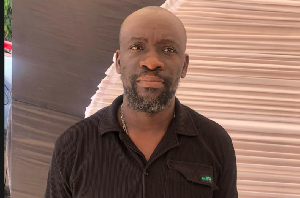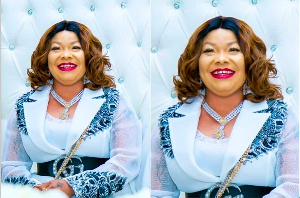It is official! John Dramani Mahama is President elect of the Republic of Ghana. It follows free, fair, peaceful and credible elections in the West African country on 7th December 2012. This is the verdict of the international observer community. It is also the commendation of the Coalition of Domestic Election Observers.
Some eight candidates took part in the presidential contest and all eight of them were optimistic of winning in the first round. In reality it became a two horse race between the 54 years old John Mahama of the ruling social democratic National Democratic Congress (NDC) and the 68 years old Nana Akuffo-Addo of the main opposition conservative New Patriotic Party (NPP).
Mahama is the son of a former Member of Parliament in the first Republic. He was the immediate past Vice President and was running for the Presidency in his own merit for the first time after the mantle was thrust upon him following the demise of the sitting President. Akuffo-Addo, on the other hand, is the son of a former President in the second Republic and this was his second shot at the presidency following a failed attempt in 2008.
Campaigning was typically African, full of colour and vitality. It will take months, may be years, for rains to wash away the tons of posters that gave it instant visibility. The elections were a buzz in town and in the village, at home and in public places, on radio and TV chat shows, and in the print and online media. The people seized every available opportunity to interrogate the promises and propaganda of the parties. Such is the importance Ghanaians attach to their democracy.
A lot was at stake in these elections and resource management was key. Since 2010 Ghana has added gas and oil to cocoa, gold and a long list of other natural resources. John Mahama suggests investment of the oil revenues in infrastructure would advance a better Ghana agenda. Nana Akuffo-Addo would rather invest it in free Senior High School education to transform lives. Whatever they mean by these positions the oil is good reason for great expectations and hopes for improved living standards in all aspects of the economy.
Ghanaians take their role as pacesetters very seriously and it dates back to the liberation struggle when Ghana became the first African country south of the Sahara to break free from colonial rule in 1957. In a region perceived to be highly volatile Ghanaians had everything to prove that the country is exceptionally exceptional. The elections are not the end but a means to progress democracy, deepen stability, accelerate development and demonstrate leadership on the continent.
Hence, when verification machines broke down it was the voters themselves who called for calm and urged each other to keep the peace. When arrival of ballot papers delayed at some polling stations, men and women of different partisan affiliations stood shoulder to shoulder through thick and thin. The love for peace and democracy united them and waited they did.
By this 6th election, the country has put to sleep the notion that Africa is a continent ruled by strong men and weak institutions. In particular the Electoral Commission of Ghana is no weak institution. They have since 1992 supervised credible elections that witnessed the loss of parties in power to parties in opposition. They have continued to awe neighbours and the international community alike. The introduction of biometric machines in this year’s elections for purposes of voter verification demonstrates their resolve to raise the bar at every stage of their evolution.
In development terms a stable and credible democracy is an invaluable asset. In Africa especially it can make all the difference between stagnation and progress. While some economists have argued that export earnings alone from the recent commercial production of oil are responsible for the high economic growth rate in the country it remains palpable that the role of a stable and peaceful democracy is not insignificant either. It creates confidence in the economy and attracts FDIs including FDIs in the exploration, production and export of oil.
Yet the 7th December elections were not totally incident free. The most reported glitch was problems at some 18% of polling stations where the new biometric verification machine malfunctioned. It was sufficient to force the elections into a second day. Some reports suggest further that macho men snatched and burnt ballot papers at a constituency in the capital Accra. Others reported of collated results being contested by losing parliamentary candidates.
Of all the incidents, however, allegations by the opposition NPP that the ruling NDC planned to massage the results raised the highest concern. Some members of the NPP are said to have stormed buildings deemed to be places where the alleged electoral offence was being hatched. It calmed nerves when the allegations turned false and everyone was re-assured with clarifications from the Electoral Commission that it was impossible to doctor the elections.
Tensions returned to the fore when the NPP declared Akuffo-Addo the winner just as the Electoral Commission was in the middle of counting the votes. It received swift condemnation from the National Peace Council and restored calm once more but not for long. Before the Electoral Commission could finish collating the polls the NPP cried foul. They alleged fraud and served notice they would not accept any outcome short of an acceptable investigation into their claims.
Indeed, when the Electoral Commission finally declared John Mahama the President elect the NPP activated their misgivings. The cumulative actions or reactions of the party have caused many to view them in poor light as a party incapable of accepting defeat. It is fair to add that these actions also probably suggest democracy is still under construction in the former British colony. To the extent that the NPP subject their claims to the confines of the law will repair their image and essentially add another building block to entrenching democracy in Ghana.
It’s early days yet and the dust will take a while to settle on the euphoria of the winning NDC and the vexation of the losing NPP. What is manifestly clear is that the people of Ghana have spoken and the elections have settled on a new leadership. There is no time for honeymoon or for bickering.
For Ghanaians it is time to pull together and celebrate the promise of their democracy. For John Mahama and all well meaning politicians it is time to go back to work, heal the wounds and steer the affairs of the nation in ways that advance the forward match of the country and put bread and butter on the tables of Ghanaians.
Samwin John Banienuba International Spokesperson for Humanitas Afrika
General News of Saturday, 15 December 2012
Source: Humanitas Afrika












